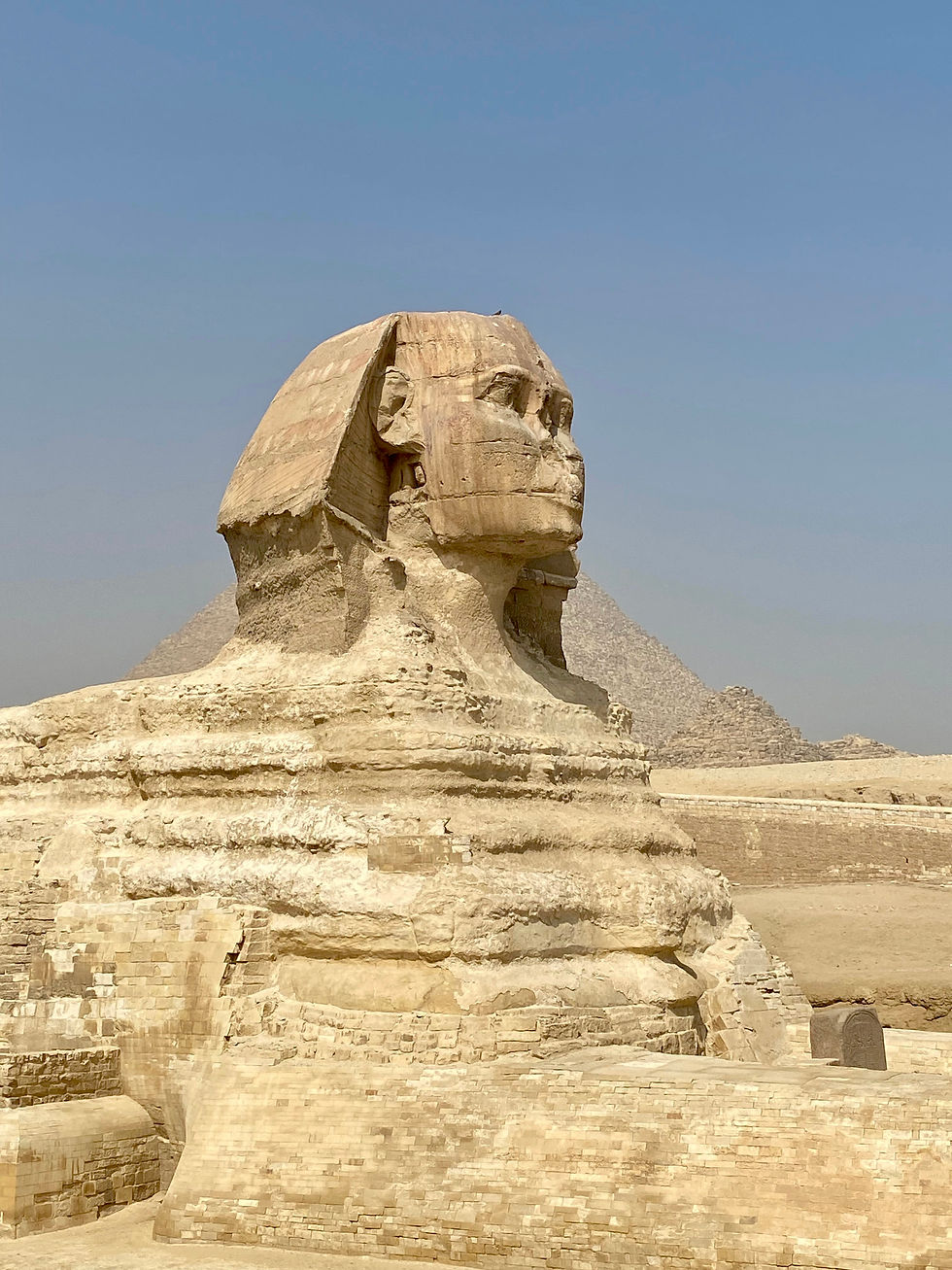“Old man river! Old man river! Just cruising along!”
- Andre Schwager

- Feb 19, 2015
- 3 min read
February 13, 2015
We left Phnom Penh this morning, cruised down the Mekong River, and crossed into Vietnam earlier this afternoon. The shoreline revealed only subtle variations. The landscape is flat, with vegetation along both sides, broken periodically by homes built on pillars, and the occasional sampan motoring by.

Cruising the Mekong River
This was an opportunity to look up and to reflect on what we’ve experienced in Cambodia. Here are my five take-aways:
My original goal was to visit and focus on Vietnam, with Cambodia as an add-on. As has happened on many of our other trips, something unexpected and impactful comes front and center. It evolves into a learning experience beyond any anticipated scope. Cambodia is this trip’s ‘something’. Beyond the beauty of its people and the temples, there is little natural or man-made beauty. I don’t expect to return. However, understanding this region, its history, and how it works today, is as they say ‘priceless’– I encourage everyone to visit.
Cambodia is an extremely damaged and poor country. It will take more than a 100 years to recover and to reach equivalency with its neighbors. Despite the fact that it’s a communist country wherein everything is collectively owned and shared, corruption is rampant – the top government officials are feeding on their own people. Bribery is present at every level. Government employees have the highest incomes. They are not hesitant to dispose of the country’s assets and natural resources for personal benefit, bending or ignoring laws with impunity. Many factories are owned by the Chinese who take advantage of low wages, and the non-enforcement of laws and regulations. Anything or anyone can be bought.
A whole generation and its collective memory is gone – eliminated by the Khmer Rouge and the power brokers of the world. There are few, if any, written records to help rebuild this memory. The USA participated in oppressing the country and its people. While we lauded Richard Holbrooke as a great diplomat when he passed away recently, lets not forget his role in the Carter administration. He was the point man to impose severe economic sanctions on Cambodia, and even more unfathomable, to promote the genocide Khmer Rouge government as the legitimate government of Cambodia, worthy of recognition by the U.N. Today, Cambodia is moving forward, is optimistic about the future, and is working hard not to carry the baggage of ill will or hatred.
Pollution of the environment is beyond anything you can imagine. As an example, prior to 1991, purchased items were tied with twine, or wrapped in a banana leaf, or palm leaf. All these ‘wrappers’ were disposed of by throwing them on the ground. In time they would decompose or get washed away in the rainy season. Once glass and plastic came into common use in 1991, the amount of trash [mainly plastic] exploded. Now it is spread everywhere – frankly it’s disgusting. They believe the solution is to re-educate and re-train the populace. The schools are teaching the children to use trash cans. Unfortunately, once they go home, the parents refuse to participate – no trash cans, and no trash collection infrastructure.
It is difficult to figure out how people actually feel today. People know that tourism is a very important source of income for the country. So they welcome and embrace us. The guides we met are educated and earn a good salary. They tell us a story…but is it the truth? Is it what the average person feels or believes? Or is it what they believe we want to hear? In reality, the country walks a tight rope. They appease China to get economic aid and national security, while hoping they won’t get annexed. On the other hand they’ve experienced the benefits of capitalism. The government owns all the land, but leases it to farmers on 50-year leases. The farmer must work the land, but he owns the crops and can sell it to anyone at the best price. In return, the farmer pays the government an annual fee for the lease. The government sanctions capitalistic behavior because it works – and because people are happier!





Comments